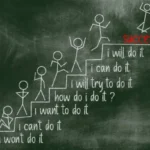Introduction to Remote Work as a Freelancer
Remote freelancing isn’t just about working in your pajamas or sipping lattes at a café. It’s about building a business from your bedroom, navigating client calls across time zones, and meeting deadlines without someone constantly checking over your shoulder.
As more companies embrace remote work, freelancers are thriving. But to really make it big in the freelance world, you need more than just talent — you need skills. Let’s break down the essentials you absolutely need to survive and thrive as a remote freelancer.
1. Time Management Mastery
Importance of Scheduling
Time is your biggest asset. Miss a deadline, and you risk losing a client. Planning your day with intention can separate a chaotic freelancer from a successful one.
Use strategies like the Pomodoro Technique or time-blocking to keep things organized.
Tools for Better Time Management
You don’t need to memorize everything. Apps like Toggl and Google Calendar can do the heavy lifting. Want to level up? Combine tools like Trello for project tracking with RescueTime for performance insights.
2. Communication Skills Are Key
Written Communication
Whether it’s replying to emails, chatting on Slack, or drafting proposals — clear and concise writing makes you look professional and competent. Use tools like Grammarly to polish your grammar and tone.
Video and Audio Clarity
Zoom calls are part of the deal. Invest in a good microphone and webcam. And always, always check your background before joining meetings. A messy room says more than you think.
3. Self-Motivation and Discipline
Avoiding Procrastination
No boss? No problem — unless you’re also your own worst enemy. Learn to recognize when you’re procrastinating and nip it in the bud. Apps like Forest can help you stay on track.
Building a Routine
Your routine is your foundation. Wake up, stretch, maybe meditate, then dive into work. Having a predictable flow boosts productivity and reduces decision fatigue.
4. Tech Savviness
Basic Tech Tools to Know
You don’t need to be a coder, but understanding basic tools is a must. Be comfortable with Google Workspace, Zoom, Slack, Dropbox, and Asana.
Staying Updated with New Tech
The digital world evolves fast. Follow sites like TechCrunch or Product Hunt to keep up with emerging tools.
5. Organizational Skills
Digital File Management
Messy desktops kill productivity. Use cloud storage (like Google Drive) and clever folder structures to keep your files neat and searchable.
Project Tracking Methods
Kanban boards, Gantt charts — whatever works for you. Tools like Notion and Trello help freelancers manage multiple gigs without dropping the ball.
6. Problem-Solving and Critical Thinking
Thinking on Your Feet
Sometimes things just break. Clients disappear. Projects derail. The ability to respond quickly and thoughtfully sets you apart.
Creative Troubleshooting
Freelancers often juggle unfamiliar problems. Being resourceful — Googling solutions, reaching out to peers, or experimenting — is part of the gig.
7. Financial Literacy
Budgeting for Freelancers
No steady paycheck means you need to master money management. Apps like YNAB (You Need A Budget) can help you track your income and expenses.
Tax Basics and Invoicing Tools
Always set aside tax money — trust me, future-you will thank you. Use tools like FreshBooks or Wave for invoices, tracking, and tax estimates.
8. Networking and Personal Branding
Building Your Online Presence
Having a slick portfolio on platforms like Behance or your own website can make a huge difference. Clients check — so make it impressive.
Leveraging LinkedIn and Twitter
Don’t just scroll. Post your work. Comment on trends. Engagement = visibility = opportunities. Networking online is the new business card.
9. Collaboration and Teamwork
Working with International Teams
Freelancers often work with people across the globe. Respecting time zones, understanding cultural differences, and over-communicating are key.
Handling Conflict Remotely
Disagreements happen. Address them professionally and promptly. Don’t ghost your client — that’s a fast-track to a bad reputation.
10. Adaptability and Flexibility
Managing Client Expectations
Sometimes clients change their minds. Sometimes they don’t know what they want. Learning to roll with the punches — while protecting your boundaries — is crucial.
Handling Sudden Changes
From last-minute edits to scope creep, adaptability makes you resilient. Have a “change clause” in your contracts to protect your time.
11. Cybersecurity Awareness
Safe Browsing Habits
Use strong passwords. Avoid sketchy sites. Don’t click on random links. You know the drill — just do it consistently.
Protecting Client Data
Clients trust you with sensitive info. Encrypt files, use VPNs, and store data securely. It’s not optional — it’s professional.
12. Learning and Self-Improvement
Staying Ahead in Your Niche
The best freelancers never stop learning. Whether you’re a writer, designer, or developer — there’s always more to learn.
Useful Online Learning Platforms
Check out Coursera, Skillshare, and LinkedIn Learning to stay sharp.
13. Focus and Avoiding Distractions
Tools to Stay Focused
Try tools like Cold Turkey, Freedom, or Focusmate to stay glued to your tasks. Turn off notifications and batch your work sessions.
Creating a Productive Environment
Invest in your workspace. Good lighting, comfy chair, noise-canceling headphones — all add up to better focus.
14. Emotional Intelligence
Managing Stress and Burnout
You’re not a machine. Take breaks, get outside, and don’t forget to breathe. Burnout kills creativity — prevention is better than cure.
Understanding Clients’ Emotions
Sometimes it’s not about the work — it’s about how the client feels. Learning to empathize builds stronger, longer-lasting relationships.
15. Goal Setting and Strategic Thinking
Short vs Long-Term Goals
Short-term = daily tasks. Long-term = career dreams. You need both. Set SMART goals (Specific, Measurable, Achievable, Relevant, Time-bound).
Creating a Career Roadmap
Where do you want to be in 5 years? Build backwards. Think of it as a GPS for your freelance career.
Conclusion
Freelancing remotely isn’t just a career — it’s a lifestyle. And like any lifestyle, you need the right skills to make it sustainable, enjoyable, and profitable. Whether you’re just starting or have years under your belt, leveling up these essential skills will keep you ahead of the curve and thriving in a competitive market.
FAQs
1. Can anyone become a remote freelancer?
Yes! As long as you have a marketable skill, a computer, and the drive to succeed, you can start freelancing remotely.
2. What’s the most important remote skill to master first?
Start with time management. It’s the foundation for every other freelance success.
3. Do I need to be online all the time as a freelancer?
Not at all. In fact, being offline and focused can increase your productivity. Just communicate availability clearly.
4. How do I find freelance clients?
Platforms like Upwork, Fiverr, and networking on LinkedIn are great places to start.
5. Is freelancing a stable career choice?
It can be. Like any business, it depends on your skills, strategy, and consistency. Many freelancers earn more than traditional employees once they find their groove.





